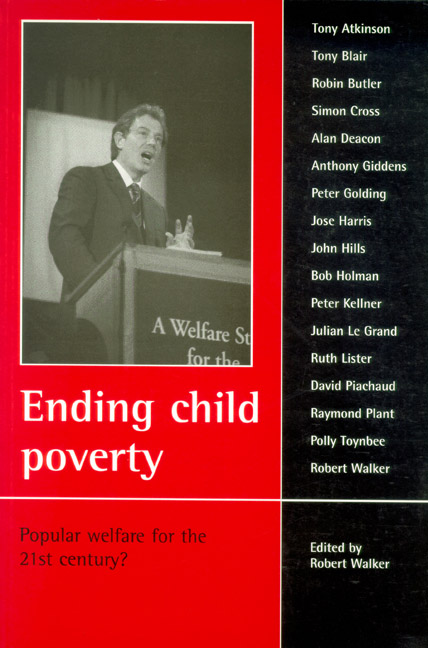1 - Introduction
Published online by Cambridge University Press: 05 July 2022
Summary
On 18 March 1999, the occasion of the 750th anniversary of University College, Oxford, Tony Blair, the British Prime Minister, delivered the Beveridge Lecture in which he set out his own vision of a welfare state for the 21st century. In this lecture, reproduced here as Chapter 2, Tony Blair reflects on Beveridge the man, his times and the reforms that he initiated that were to lay the foundation for welfare in the second half of the 20th century. He goes on to consider the profound social changes that have reshaped modern society over the last 50 years and the apparent failure of the welfare policies to respond sufficiently to prevent the growth of poverty, social decay and social exclusion. The present-day welfare state, he concludes, is not fitted for the modern world. Indeed, it is seen by some to be the social problem rather than a solution to social needs. Finally, and most importantly, he articulates a new vision for the future that is perhaps as challenging as the blueprint laid down by Beveridge.
Despite the importance of Blair’s Beveridge Lecture, it is not surprising that it did not attract the attention accorded to the Beveridge Report with its detailed programme of reform that caught the popular imagination in wartime Britain and provided a glimpse of a better world to come. Competing with the war in Kosovo and the murder of a Northern Ireland civil rights lawyer, coverage of the Beveridge Lecture was very largely limited to the print medium. Moreover, in today’s world, neither poverty, nor policy on poverty, is news unless there is at least the hint of political discord (see Simon Cross and Peter Golding in Chapter 16). In fact, Blair’s new commitment in the Lecture to end child poverty within 20 years was met with a considerable degree of accord in both the tabloids and the broadsheets. There was discussion about the appropriateness of the time-scale and about the absence of a precise definition of poverty and, in some quarters, a world-weary scepticism about Labour’s true intentions, but little direct hostility. Equally, though, there was little discussion of the strategy for eradicating child poverty, something that Blair often dealt with only at the level of principle.
- Type
- Chapter
- Information
- Ending Child PovertyPopular Welfare for the 21st Century?, pp. 3 - 6Publisher: Bristol University PressPrint publication year: 1999

